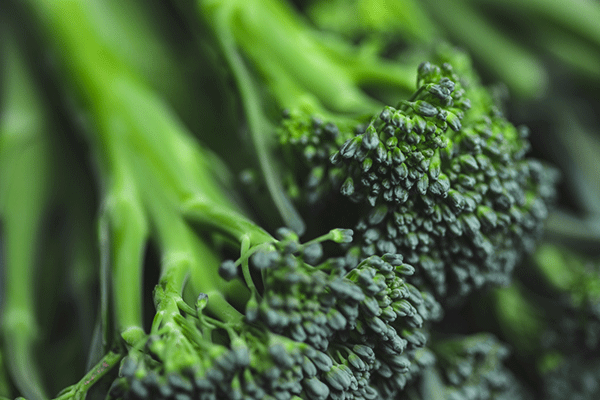Organic specialist at seed company Elsoms, Stephanie Beavis, gives Wicked Leeks a glimpse into the world of seed breeding, searching for flavour and how to find the next big thing in organic veg.
What makes organic seed different to conventional [non organic]?
Organic seed is produced from organic plants and on organic land, produced and sold without the use of pesticides. We are proud to offer seed from our own breeding work and from our partner, Bejo Zaden [in Holland]. Some varieties are produced exclusively for the organic market, for example our carrot variety Miami is only available as organic seed.
What attributes do breeders aim for in organic vegetables?
Varieties with good tolerance to disease lend themselves to organic, as there is no option for chemical control. Good vigour and speed of growth help with weed control, by out competing any unwanted weeds before they have a chance to take over!
How important is flavour when breeding a new variety?
When breeding for new material, flavour is a fundamental part of this process and each new breeding line is given a score for this attribute. We score varieties based on their flavour by carrying out taste tests.
How do you breed new varieties and what are you looking for?
We sell modern hybrid varieties which are selected for a range of qualities, flavour and characteristics as well as yield. A hybrid seed is bred by crossing two distinct inbred parent lines. The pollen is taken from the male flower of one plant and placed it to the female flower parts of a separate plant. The ovary of the female plant swells once it is pollinated, then forms a fruit. The seeds from this fruit are then ‘hybrid’. This differs from older breeding techniques, called open pollinators (OP), which result from a simple sharing of pollen between two like parent plants.
Producing hybrids is a long process that can last years. The goal of the breeders is to separate out the desired genetic traits of two plants and combine into one.

What else affects the flavour and nutrition of a vegetable?
A healthy soil gives the seed the best start in its life. The plant will take its nutrients from the soil which positively impacts its size, uniformity and yield. So there is a direct link between the soil and the plant health.
What does a day in the life of an organic seed specialist look like for you?
The role itself will vary from day to day. Sometimes I’ll be out with growers, looking at our varieties’ performance in the field or packhouse, and other days I’ll have my head down working through emails or analysing sales figures. As we start to unlock from the pandemic, I plan to spend time overseas with Bejo – where our organic seed comes from and is produced.

Is there a rising demand for organic seed? What’s behind this in your opinion?
The pandemic has been kind to organic sales and at Elsoms we have seen an increase in interest over the last 18 months. During lockdown, people took time to learn about where the food is coming from and what goes in to it. People traded up into organics when they could eat out in restaurants. This demand naturally increases the demand for organic seed.
What new organic products do you see coming down the line in the next few years?
We have just launched a new variety of spring green cabbage called Verve. It is popular with growers for its astonishing uniformity and large bold green colour leaves. Another new variety for is Burgundy broccoli, part of our joint breeding programme with Bejo, which can be used as a whole broccoli, or cut for spears.
More recently, we have seen a higher demand for less common vegetables to be grown organically. Box schemes are a great way for consumers to discover these and try new varieties. It’s great to see strong demand for products such as coloured carrots and beetroot, kohlrabi and fennel.












Thank you Steph, very informative. Nice to see that that for a change our 100 year pandemic is for a change actually useful. After all if we are going to have one of these things roughly every 100 years lets use it sensible (other than as natures cull of unwanted ‘umans – whoops). Isn’t it nice to see that people are again finding out where their food actualy comes from -probably a little scary to for the inner city child who finds that the milk they drink actually comes from a living thing called a cow (sheep, goat etc.) and not out of a gi-nor-mouse udder in the Supermarket!
The Walrus